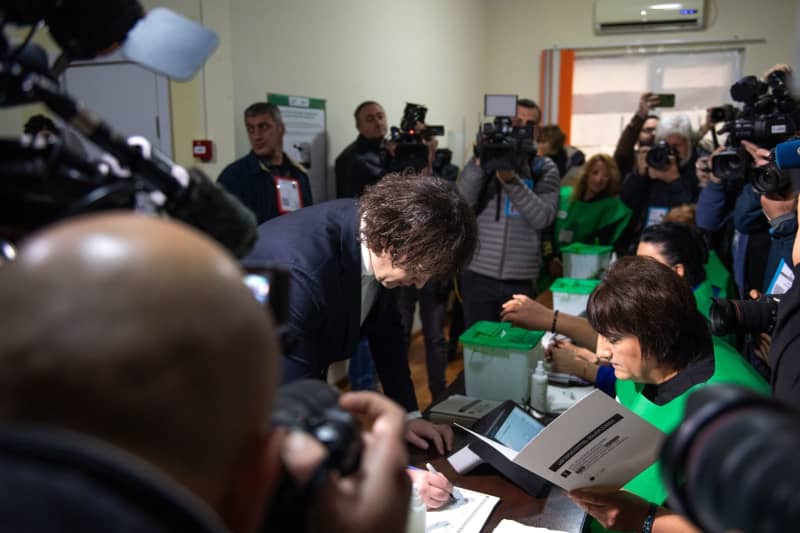Polls closed in Georgia’s significant parliamentary election on Saturday, with the ruling Georgian Dream party reportedly claiming a robust lead. Imedi television’s exit polls suggested a commanding 56% of the vote for Georgian Dream, while other broadcasters indicated a more modest estimate of approximately 40%. The party, which promotes partnering with Russia, celebrated these preliminary results with fireworks in Tbilisi shortly after the polls closed at 8 pm local time (1600 GMT). The atmosphere was festive as supporters gathered to mark what they anticipated as a victorious night.
As the political landscape in Georgia has become increasingly polarized, the initial exit polls indicated limited support for the opposition. An alliance of pro-Western opposition parties received around 11.6% according to Imedi’s reporting. This scenario suggests a significant gap between the ruling party and its challengers, raising questions about the future trajectory of democratic governance and alignment with Western policies in Georgia. The public eagerly awaited first official results to better understand the vote distribution and potential seat allocations in the newly formed parliament.
Prime Minister Irakli Kobakhidze, a key figure in the Georgian Dream party, actively participated in the election process by casting his vote at a polling booth, symbolizing the party’s engagement with the electorate. His presence exemplifies the ruling party’s efforts to connect with voters in a critical electoral moment. The elections are pivotal not only for domestic governance but also for Georgia’s international relationships, particularly its stance on cooperation with both Western and Eastern powers.
The patriotic fervor among Georgian citizens is palpable during elections, with many viewing their participation as a duty toward shaping the nation’s political future. Despite the celebrations by Georgian Dream supporters, the opposition has expressed concerns about electoral integrity and transparency, which have been recurring themes in Georgia’s recent political history. The response from international observers regarding the electoral process will be crucial in assessing the legitimacy of the results and the subsequent actions of the ruling party.
As the results began to unfold, the possibility of political tension loomed. The opposition’s relatively low early projections could lead to disillusionment among voters who favor a more Western-oriented approach for Georgia. This could further polarize the already intense political environment, prompting parties to contest the results and potentially leading to public demonstrations or political unrest. The potential for prolonged disputes over election outcomes creates an atmosphere of uncertainty regarding the stability and unity of Georgia’s democratic institutions.
In summary, the parliamentary elections in Georgia mark a crucial turning point for the nation’s political trajectory, with Georgian Dream asserting a strong lead in preliminary results. The contrasting support for opposition parties highlights the complexity of public sentiment regarding foreign policy and domestic governance. As the official results are awaited, the implications of the election outcomes will have lasting impacts on Georgia’s democracy and its international relations. Ensuring a transparent and fair process will be essential in maintaining public trust and fostering stability in the nation.

